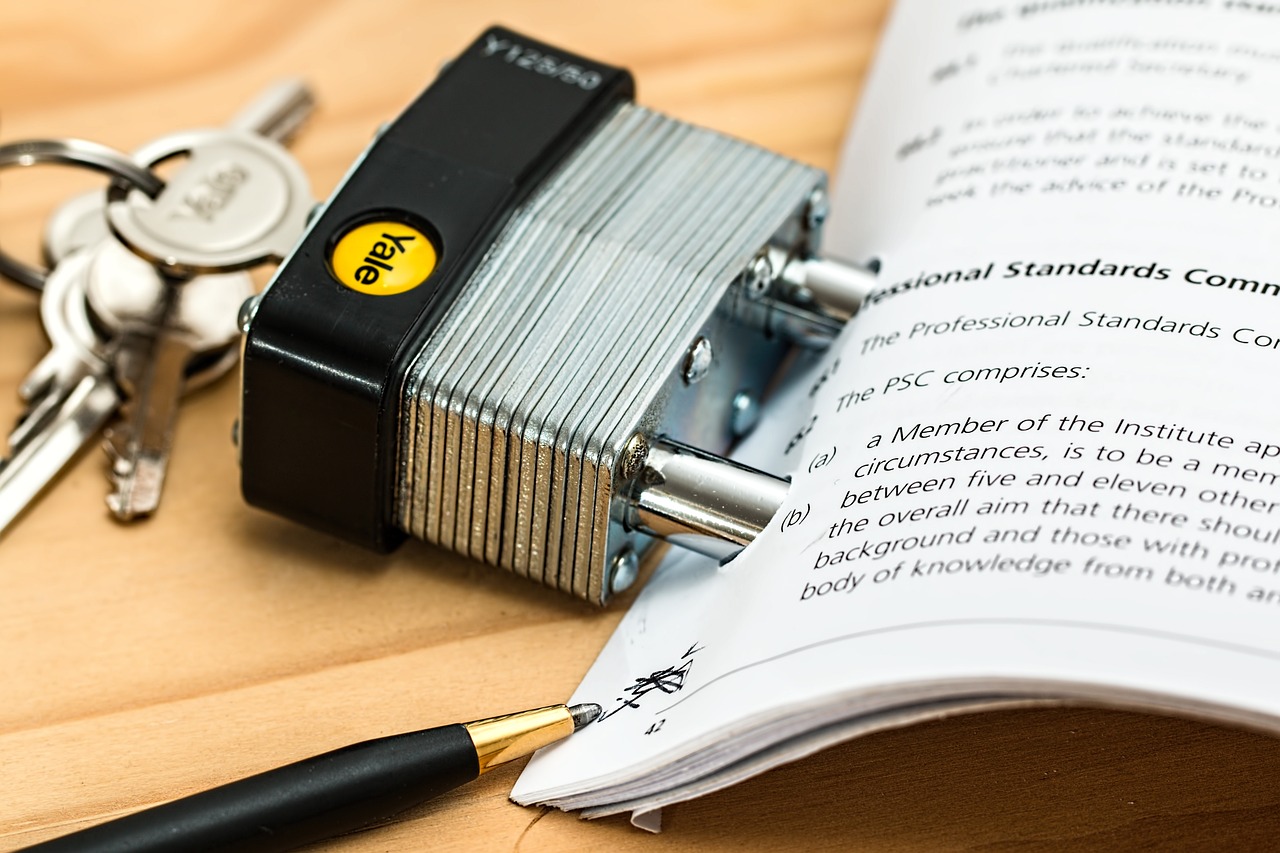Are you in need of legal advice in West Haven, Utah? Look no further than the expert guidance of a contract lawyer. With their extensive knowledge and experience, a contract lawyer can provide reassurance and guidance when it comes to common legal concerns. Whether you’re dealing with contract disputes, drafting agreements, or seeking legal representation, a contract lawyer in West Haven, Utah is your go-to resource. Don’t hesitate to reach out and take the next step in seeking assistance promptly. Contact the attorney listed on our website today to get the help you need.
Introduction
Are you considering entering into a contract or dealing with a contract-related issue? Contract law can be complex and intimidating, especially if you don’t have a legal background. That’s where a contract lawyer comes in. In this article, we will explore the ins and outs of contract law, the importance of hiring a contract lawyer, when you might need their services, how to choose the right contract lawyer, common contract issues, the steps in the contract law process, and where to find a contract lawyer in West Haven, Utah.
Understanding Contract Law
What is contract law?
Contract law is a branch of civil law that deals with legally binding agreements between two or more parties. These agreements, known as contracts, outline the rights and obligations of each party and serve as a protection for everyone involved. Contract law provides a framework for ensuring that all parties involved fulfill their promises and that any disputes arising from the contract can be resolved properly.
Key elements of a contract
A contract is formed when certain key elements are present. These elements include an offer, which is a proposal made by one party to another; acceptance, where the other party agrees to the terms of the offer; consideration, which is the exchange of something of value between the parties; and the intention to create legal relations.
Common types of contracts
Contracts can take many forms depending on the nature of the agreement. Some common types of contracts include employment contracts, lease agreements, purchase agreements, service contracts, and construction contracts. Each type of contract has its own unique set of terms and conditions that must be carefully considered and negotiated.
The importance of hiring a contract lawyer
While it is possible to create and enter into contracts without the assistance of a lawyer, it is highly recommended to consult with a contract lawyer to ensure that your rights and interests are protected. A contract lawyer has specialized knowledge and experience in contract law and can provide you with expertise, guidance, and advice that can make a significant difference in the outcome of your contract-related matters. Their expertise can help you navigate the complex legal landscape and ensure that your agreements are enforceable and legally sound.

Why Hire a Contract Lawyer
Expert guidance and advice
One of the primary reasons to hire a contract lawyer is their expert guidance and advice. They will bring their knowledge of contract law and their experience with various types of contracts to the table, helping you understand the legal implications of your agreements. A contract lawyer can help you draft contracts, negotiate terms, and review existing contracts to ensure that you are entering into fair and favorable agreements.
Protecting your rights and interests
When dealing with contracts, it is crucial to protect your rights and interests. A contract lawyer will work diligently to safeguard your rights and ensure that the terms of the contract are in your best interest. They will thoroughly analyze the contract, identifying potential risks and advising you on how to mitigate them. In case of any disputes, a contract lawyer will be your advocate, fighting for your rights and seeking a resolution that works in your favor.
Preventing potential legal disputes
By involving a contract lawyer at the early stages of contract formation, you can help prevent potential legal disputes down the line. A contract lawyer will carefully draft and review the terms and conditions of the contract, ensuring that they are clear, concise, and enforceable. They will also ensure that all necessary legal requirements are met, reducing the likelihood of any future disputes arising.
Ensuring compliance with laws and regulations
Contracts are not created in a vacuum – they must comply with relevant laws and regulations. A contract lawyer will have a deep understanding of these legal requirements and will ensure that your contracts adhere to them. This not only helps protect your legal rights but also ensures that you are not unknowingly entering into an agreement that could be deemed invalid or unenforceable.
When Do You Need a Contract Lawyer
Starting a new business
Starting a new business involves a multitude of contracts, including partnership agreements, supplier contracts, employment contracts, and more. A contract lawyer can help you navigate this complex web of agreements, ensuring that your rights are protected and that your business is set up for success.
Drafting or reviewing contracts
Whether you are creating a contract from scratch or reviewing an existing contract, a contract lawyer’s expertise is invaluable. They will ensure that the terms are fair, clear, and enforceable, protecting your interests and minimizing any potential risks.
Negotiating contract terms
Negotiating contract terms can be a complex and delicate process. A contract lawyer can represent your interests and negotiate on your behalf, ensuring that you secure the most favorable terms possible. Their knowledge of contract law and negotiation strategies can greatly benefit you during the negotiation process.
Resolving contract disputes
In the unfortunate event of a contract dispute, a contract lawyer will be your advocate and guide you through the resolution process. They will assess the situation, determine the best course of action, and help you navigate the legal procedures involved in resolving the dispute.
Terminating contracts
When terminating a contract, certain legal obligations and procedures must be followed. A contract lawyer will ensure that you adhere to these requirements and minimize any potential legal consequences. They can also help negotiate the terms of termination or handle any disputes that may arise.
Choosing the Right Contract Lawyer
Experience and expertise
When choosing a contract lawyer, experience and expertise are crucial factors to consider. Look for a lawyer who specializes in contract law and has extensive experience handling cases similar to yours. An experienced lawyer will have encountered a wide range of contract issues and will be well-equipped to handle your specific needs.
Reputation and track record
A contract lawyer’s reputation and track record can speak volumes about their abilities and professionalism. Look for reviews, testimonials, and case studies from past clients to gain insight into their reputation. Additionally, consider their success rate in resolving contract-related disputes or negotiating favorable outcomes.
Communication and responsiveness
Good communication is key when working with a contract lawyer. Look for someone who listens to your concerns, explains complex legal matters in a clear and understandable manner, and responds promptly to your queries. A lawyer who is easily accessible and responsive will ensure that you are informed and involved throughout the process.
Affordability and billing structure
Legal services can be costly, so it is important to consider the affordability and billing structure of a contract lawyer. Discuss their fee structure upfront and inquire about any potential additional costs. Some lawyers may offer alternative fee arrangements such as flat fees or contingent fees, which can make their services more accessible and affordable.
Client testimonials and references
Requesting client testimonials and references is a great way to gauge a contract lawyer’s capabilities and client satisfaction. Reach out to past clients if possible, or ask the lawyer to provide contact information for references. Hearing about others’ experiences can give you confidence in your decision to hire a particular lawyer.
Common Contract Issues
Breach of contract
A breach of contract occurs when one party fails to fulfill their contractual obligations. This can include failure to pay, failure to deliver goods or services, or failure to meet deadlines. A contract lawyer can help you determine if a breach has occurred and work towards resolving the issue in your favor.
Misrepresentation or fraud
If one party misrepresents or conceals important information during the negotiation or formation of a contract, it may be considered fraud. A contract lawyer can help you identify instances of misrepresentation or fraud and take appropriate legal action to protect your rights.
Ambiguity or vagueness in contract terms
Contracts should be clear and unambiguous to prevent disputes over interpretation. If there is uncertainty regarding certain terms or provisions in a contract, a contract lawyer can help clarify the language and ensure that the intent of the parties is accurately reflected.
Failure to fulfill contractual obligations
When one party fails to fulfill their contractual obligations, it can cause significant disruptions and financial losses. A contract lawyer can assist you in enforcing the contract and seeking remedies for non-performance, such as seeking damages or specific performance.
Disputes over contract interpretation
Contract terms are open to interpretation, and disputes may arise if parties have differing understandings of what those terms mean. A contract lawyer can help interpret the contract language and use legal principles to argue for your preferred interpretation, ensuring that your rights and interests are protected.

Steps in the Contract Law Process
Initial consultation
The first step in the contract law process is to schedule an initial consultation with a contract lawyer. During this consultation, you can discuss your specific needs and concerns, and the lawyer will provide an assessment of your situation and recommend a course of action.
Contract analysis and review
Once engaged, the contract lawyer will thoroughly analyze and review the contract in question. They will identify any potential issues, ambiguities, or unfair terms and provide recommendations on how to proceed.
Negotiations and revisions
If negotiations are necessary, the contract lawyer will represent your interests and work towards securing more favorable terms. They will negotiate with the other party or their legal counsel, aiming for a mutually satisfactory outcome. Revisions to the contract will be made as necessary.
Contract signing and execution
After all parties have agreed to the final terms, the contract will be signed and executed. Your contract lawyer will ensure that all legal requirements are met during this process, and that the contract becomes legally binding.
Enforcement and dispute resolution
If a dispute arises during the term of the contract, a contract lawyer will represent you in seeking a resolution. They may engage in negotiation, mediation, or arbitration to resolve the dispute. If necessary, they can also initiate legal proceedings and represent you in court.
Finding a Contract Lawyer in West Haven, Utah
Local directory listings
Consulting local directory listings can be a good starting point in your search for a contract lawyer in West Haven, Utah. These directories often provide contact information and basic details about local lawyers, making it easier for you to narrow down your options.
Online legal directories
Online legal directories offer a wealth of information about contract lawyers in your area. They provide more comprehensive profiles of lawyers, including their areas of expertise, years of experience, and client reviews. These directories allow you to compare and contrast different lawyers to find the best fit for your needs.
Referrals from friends or family
Seeking referrals from friends or family members who have had positive experiences with contract lawyers can be a valuable resource. They can provide firsthand insight into a lawyer’s capabilities, professionalism, and level of client satisfaction.
Online search and reviews
Conducting an online search for contract lawyers in West Haven, Utah can yield a wealth of information. Read reviews and testimonials from past clients to gain a better understanding of a lawyer’s reputation and track record. Additionally, visit lawyer websites to gather more information about their services and expertise.
Lawyer referral services
Lawyer referral services can connect you with qualified contract lawyers in your area. These services carefully vet lawyers based on their qualifications and experience, ensuring that you are connected with a lawyer who meets your specific needs.

Questions to Ask a Contract Lawyer
When meeting with a contract lawyer, it is important to ask questions to ensure they are the right fit for your needs. Here are a few questions to consider:
How long have you been practicing contract law?
Experience in contract law is crucial to effectively handle contract-related matters. Inquire about the lawyer’s experience and how long they have been practicing contract law.
Have you handled cases similar to mine?
While every case is unique, it is beneficial to work with a lawyer who has experience in cases similar to yours. Ask if they have handled similar contract matters and inquire about the outcome of those cases.
What is your fee structure?
Understanding the lawyer’s fee structure is important to ensure it aligns with your budget. Inquire about their hourly rate, any retainer or upfront fees, and whether they offer alternative fee arrangements.
Can you provide references from past clients?
Asking for references from past clients can provide insight into the lawyer’s professionalism, communication, and success rate. Reach out to these references to gain a better understanding of their experience working with the lawyer.
How would you approach my case?
Understanding how the lawyer would approach your specific case can help you assess their strategy and determine if it aligns with your goals. Ask about their preliminary thoughts on your case and what steps they would take.
Conclusion
Contract law is a complex and intricate field that requires specialized knowledge and expertise. Hiring a contract lawyer can greatly benefit you in navigating the realm of contracts, ensuring that your rights are protected, and helping you achieve your desired outcomes. Whether you are starting a new business, drafting contracts, negotiating terms, resolving disputes, or terminating contracts, a contract lawyer can provide you with the guidance, advice, and representation you need. Take the time to choose the right contract lawyer for your needs, and you will be equipped with the necessary legal expertise to tackle any contract-related issues that may arise. Don’t hesitate to reach out to a contract lawyer in West Haven, Utah to discuss your needs and seek the assistance you require. Your legal rights and interests deserve proper protection, and a contract lawyer can provide that assurance.
























